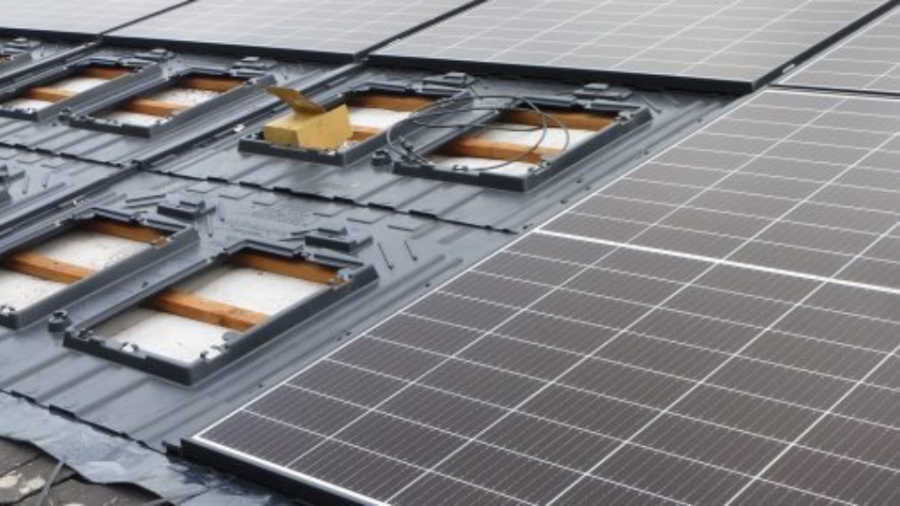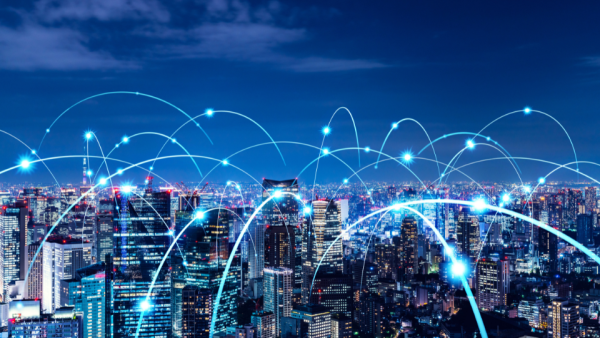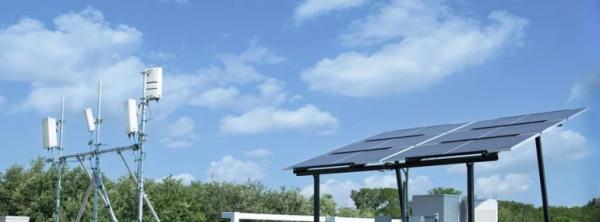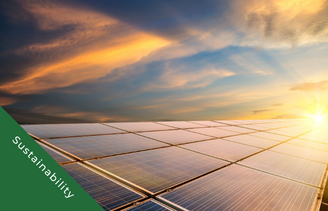Written by Andrew Wooden for Telecoms.com

UK operator Vodafone detailed the technical developments it is making to render its network more energy efficient, such as installing its first on-site solar panels at an exchange in Gloucester.
The idea to install its first on-site solar panels at a mobile telephone exchange (MTX) network site in Gloucester is that the site will use electricity generated directly and reduce reliance on the national grid. The 720 solar panels will produce around 240,000kWh of renewable electricity a year, we’re told, which represents around 12% of the site’s annual energy requirement. The intention is to install rooftop solar PV across more sites across the UK over the next two years.
Vodafone says this is part of a wider push to leverage tech such as big data analytics, AI and machine learning to make its UK network generally more energy efficient. It claims data carried on Vodafone’s UK network has increased by about 300% since 2019, but energy consumption has remained flat and carbon emissions have fallen by 77%.
One approach to achieve this is by utilising an in-house developed big data analytics platform to help optimise power consumption across its 11,500 radio base station footprint. How it works is AI helps energy specialists identify ‘consumption anomalies’ and parts of the network gobbling up more energy than expected, and ‘targeted actions can be then delivered to make the sites more energy efficient.’
It’s also got something called the Vodafone Smart Sites programme in which it has hooked up IoT and AI functions to 1,300 of its highest energy consuming base stations, which apparently enables it to manage the sites remotely and reduce the need for engineer visits.
“We all recognise the need to drive energy efficiencies – both from a financial and environmental perspective,” said Andrea Dona, Network Director, Vodafone UK. “The fact we’ve been able to decouple the link between data carried, energy consumption and carbon emissions is thanks to our laser-focus on energy efficiency – and nowhere is this more important than across our network.
“Using our own technologies to deliver brilliant programmes such as big data and Smart Sites is hugely impactful. Onsite power generation is another important ambition, and I’m delighted we now have our first on site solar up and running on our Gloucester MTX.”
Fleshing out these initiatives at the roundtable, Dona told a group of journos and analysts that ultimately Vodafone wants to be completely net zero in UK by 2040, though admitted these things are easier said than done especially in energy crisis.
As well as bringing in fancy AI and analytics functionality to key sites, we’re told some of the efficiencies are achieved by aggregation and moving to edge-based architecture. But also key is looking at legacy equipment and decommissioning old kit, and in the future switching off 3G networks will help with its goals in this regard as well since 4G and 5G are generally just more energy efficient.
With regards to working with regulators on this point, Dona emphasised the need for a focus on the desired outcome in a collaborative and transparent way, indicating that while there may be legacy customers and uses for 3G, at some point you just need to turn old tech off.
When the subject of Open RAN came up, as it tends to in conversations about telecoms, it was described as a great opportunity to scrutinise each component to make sure it’s up to scratch with regards to energy efficiency.
All in all the intention seemed to be about detailing the work Vodafone is doing with regards to driving down energy usage on its networks. While presumably the process of upgrading older tech with more efficient and generally better new kit is a constant process and one which the energy efficiencies that come with it may not the primary driver, it’s certainly good to see some detail on actual tactics as opposed to the vague handwaving around Scope 1/2/3 aspirations you get from many firms in many industries.
Click here to read the original article.



